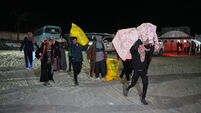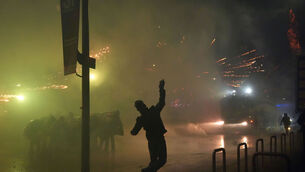Bush given hero's welcome in Albania
US President George Bush was given a hero's welcome in Albania today as he became the first American president to visit the impoverished Balkan nation.
The hills overlooking the capital boomed with cannon bursts heralding his arrival and thousands of people gathered in the downtown square on a brilliantly sunny day to see the US leader.














